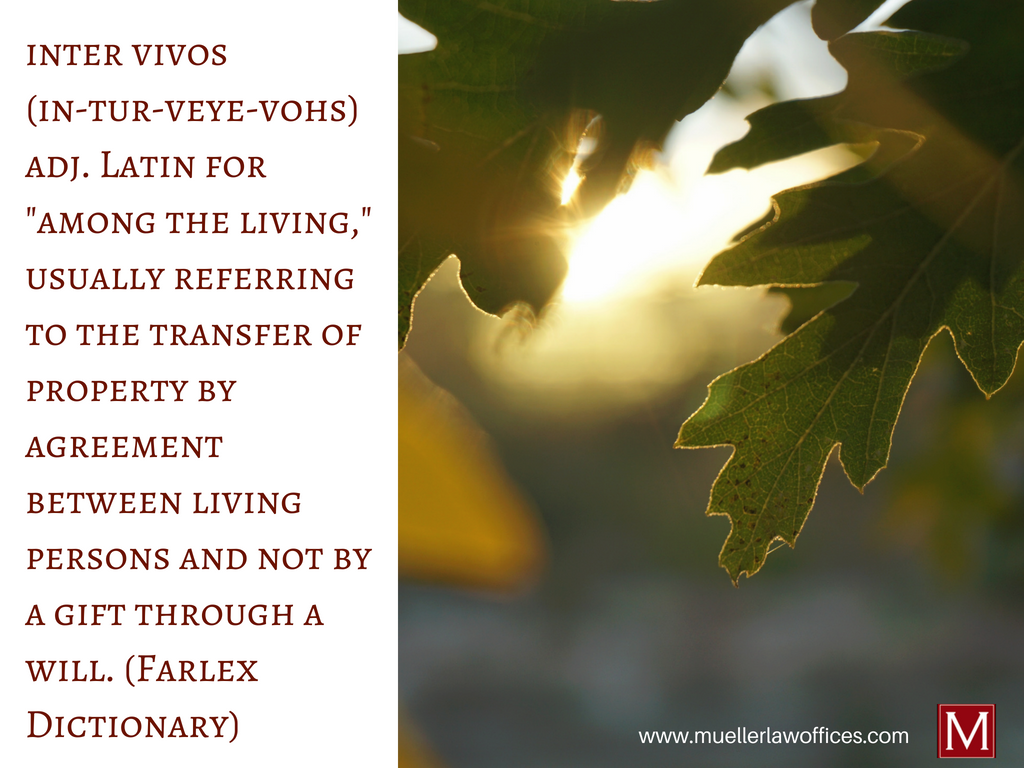
As an Estate Attorney, I’m often asked the question, “What is a Trust? Do you believe it’s important for me to have one?” The short answer: a trust is a three-party legal relationship that is an extremely valuable tool to use in your estate plan. And, if relevant to your financial situation, it’s very important to have one.
The long answer: When creating a trust, there are many factors to consider. There are also many benefits. With a trust, you are able to specify the distribution of your wealth to whomever you choose, conserve your legacy, and – in most cases – avoid probate. Continue reading to understand all the pertinent details and the benefits of having a trust. Also, keep in mind, should you decide to have one, legal counsel is advised and I’d be more than happy to help out.
Let’s Dig Deeper into the Question, “What is A Trust?”

A trust is a legal relationship or fiduciary agreement. One person, the “Grantor” (also known as a “Donor”, “Settlor”, or “Trustor”), transfers property to another person known as the “Trustee.” The Trustee holds the property, managing and using it for the benefit of a third person, known as the “Beneficiary”.
The property can be almost anything:
- Money
- Real Estate
- Business Interests
- Securities
Depending upon the type of trust, the Grantor, Trustee, and Beneficiary may be three different individuals. In some instances, they may all be the same person. The document which creates this relationship and spells out the terms is known as the “Trust Agreement.”
Once created, a Trust is a legal entity which is capable of owning property. It may even have its own taxpayer identification number and have to file income tax returns.
Types of Trusts

Trusts are usually defined by two characteristics. The first characteristic is the point in time at which the trust was created. The second characteristic which defines a trust is whether it is “revocable” or “irrevocable.”
Revocable Living Trusts
This type of fiduciary agreement has become increasingly popular. As the name implies, this is an “inter vivos” and “revocable” trust. This means the trust is created during the Grantor’s lifetime and keeps the authority to amend or revoke it. The Grantor, Trustee, and Beneficiary are all the same person. The usual purpose is to provide for the transfer of the Grantor’s assets to the beneficiaries upon the Grantor’s death. This will help to prevent going through the court-supervised probate process.
With a revocable trust, the Grantor keeps the authority not only to change the terms of the trust, but also the authority to revoke, or undo the trust completely.

Testamentary or Irrevocable Trust
A Testamentary trust is created during the Grantor’s lifetime through the Last Will and Testament of the parents. It is a common type of trust that allows the parents to provide for their children’s financial needs. For example, in the event of the parents’ death, a more mature, financially responsible person is named Trustee. They manage the money until the children are older.
This type of trust may not be changed or revoked. Even by the Grantor, once it has been properly created, property held in an irrevocable trust cannot be removed. Property that has been placed in a revocable trust can be removed by the Grantor at will.
Special Needs Trust
Similar to a Testamentary or Irrevocable Trust is a “Special Needs Trust”. This allows the parent, or another person, to provide financial support for a disabled beneficiary. It also helps to keep any governmental benefits (such as Medicaid or SSI) they may receive. Click HERE to learn more about this type of trust.
Funding the Trust

Putting property in a trust, a process also referred to as “funding the trust,” occurs when the Grantor transfers ownership of the property to the trust. Although the trust is the actual owner, the Trustee is the legal representative. Therefore, the Trustee’s name is usually used in the new title designation. For example, if John Smith created a trust for himself, but named his daughter, Jane, the Trustee of that trust, the new title designation may read “Jane Smith, Trustee of the John Smith Trust.”
Also, keep in mind that the Trustee has no personal ownership of the assets. He or she only holds and manages the property in accordance with the instructions described in the trust agreement, as well as other restrictions or authority permitted by law.
Caution should always be used when funding a trust because changing the title to the asset may not necessarily be the correct action to take. With some assets, it may be more appropriate to change the beneficiary designation. The purpose of the trust, as well as the type of asset (real estate vs. savings account vs. IRA), will dictate what should be done. Proper guidance from either a financial or legal professional should always be sought when funding a trust.
 Looking to Get Started or Learn More?
Looking to Get Started or Learn More?
Now that you’ve covered all of the detail, you should be able to offer some insight to others when they ask, “What is a Trust?” Just make sure to remind them that a Legal Attorney will help them through the planning process. What works for you might not work for your neighbor and visa versa.
If you’d like assistance in adding this tool to your estate plan, I’d be happy to offer guidance. You can reach me 414.430.1722, connect with me via email, or fill out a form on my contact page.
Like this article? Please share it:How a Special Needs Trust Can Protect Your Disabled Loved One
Have you been told that you cannot leave money to a disabled son, daughter, or grandchild? If they receive certain Government benefits, it’s true. Fortunately, there is a solution to this problem. Read on to understand how a Special Needs Trust is in your loved one’s best interest. Learn how to plan carefully so you’re not jeopardizing your loved one’s ability to receive Supplemental Security Income (SSI) and Medicaid benefits.

What Government Benefits Have Asset Restrictions?
Benefits that have asset restrictions include Supplemental Security Income (SSI), Medicaid, and subsidized housing. Unfortunately, if the individual has more than the maximum amount, his or her benefits will be interrupted. If you want to leave money upon your death or a gift during your lifetime to someone with a physical or mental disability, or a person who is chronically ill, you must know your legal rights and plan carefully.
How have I been able to protect my clients? By helping them set up a Special Needs Trust as part of their estate plan.
What is a Special Needs Trust?
You can leave money to your loved one without interfering with the public benefits by setting up a Special Needs Trust (also referred to as a Supplemental Needs Trust). This type of trust enables a person with a disability or chronic illness to have an unlimited amount of assets held for his or her benefit.
That being said, instead of leaving property directly to your loved one, you leave it to this trust. The assets held in the trust as not considered “countable” assets in determining whether the individual qualifies for the benefits because the individual does not own them, rather the trust does. The trust, in turn, provides for extra items or care over and above what the government provides.

How Can the Trust Be Used?
The Special Needs Trust can pay for many of the items or services your loved one may want or need in the future. For example, Medicaid won’t pay for certain medical treatment, so the trust can step in and pay for it. If Medicaid will only pay for a basic piece of medical equipment, the trust can provide whatever additional funds are necessary to pay for a nicer model. The trust can pay for alternative treatments, vitamins and supplements, massages, and even grooming supplies.
The Trust can also pay for those extras that may not be medically necessary, but which would definitely increase the disabled person’s quality of life, such as summer camp, airline tickets for travel (including a companion, if necessary), electronic games, computer equipment, nicer furniture or even a larger television.
What Assets Can Be Used to “Fund” A Special Needs Trust?
Almost any type of asset can be used to “fund” a special needs trust, including life insurance proceeds, other inheritances or lifetime gifts. Once the trust is established, other family members or friends can add to the trust through their own estate plans.

Who Manages the Trust?
The trust funds are managed, administered and distributed by the trustee. The trustee should be someone who gets along well with the disabled person and has his best interests at heart as he is the one who will decide if and when any money is distributed. The trustee should also be someone who is comfortable managing money and has a track record of being responsible with their own money.
What is a Pooled Trust?
If you do not have a good candidate to serve as trustee, or if you intend to leave only a modest amount of money to the trust, consider using a “pooled trust.” A pooled trust is a type of special needs trust that is run by a non-profit organization which pools and invests funds from many families. Under the pooled trust structure, each disabled person still has a separate account for those funds added by his family which are used only for his benefit, but all of the funds are invested and managed as a whole.

Setting Aside Money to Trusted Relatives Can Backfire.
It may seem smart to leave money to a trusted relative for your disabled loved one. Unfortunately, even when all the parties have the best of intentions, things can and do go wrong. For example, if the “holder” of the money dies, those funds will automatically be distributed to his or her beneficiaries. They may not want to use it for the disabled person.
Additionally, once the “holder” receives the money, it is legally theirs. No matter what the agreement, he or she can’t be “forced” to use it for the disabled person. They could also be involved in litigation, bankruptcy, or divorce, and none of those legal proceedings would differentiate between the money he is “holding” for the benefit of the disabled person and his own assets.
In short, the use of a Special Needs Trust would solve these problems while ensuring that the funds are used solely to enrich the life of the disabled person.
Let’s Connect.
If you’d like to learn more or set up a Special Needs Trust as part of your estate plan, let’s talk. We can meet at my office, located in Elm Grove, Wisconsin, or I am happy to make a house visit. You can reach me by clicking below or contacting me at 414-430-1722.

Like this article? Please share it:
Authorization for Final Disposition
The Authorization for Final Disposition is a document which allows you to designate a representative who will have the legal authority to make decisions regarding your funeral arrangements and the disposition of your body. This document is still fairly new in the State of Wisconsin. Absent a signed Authorization, Wisconsin law designates who has such authority. The law establishes the following order of priority: 1) surviving spouse or domestic partner; 2) surviving child or children; 3) surviving parent or parents; 4) surviving sibling or siblings; 5) lineal descendants in the priority order spelled out in the Wisconsin Statutes; 6) the guardian at the time of death; and 7) any other person willing to control the funeral and final disposition who attests in writing that they have made a good faith effort and could not locate any of the persons in the above priority list.
Like this article? Please share it:
